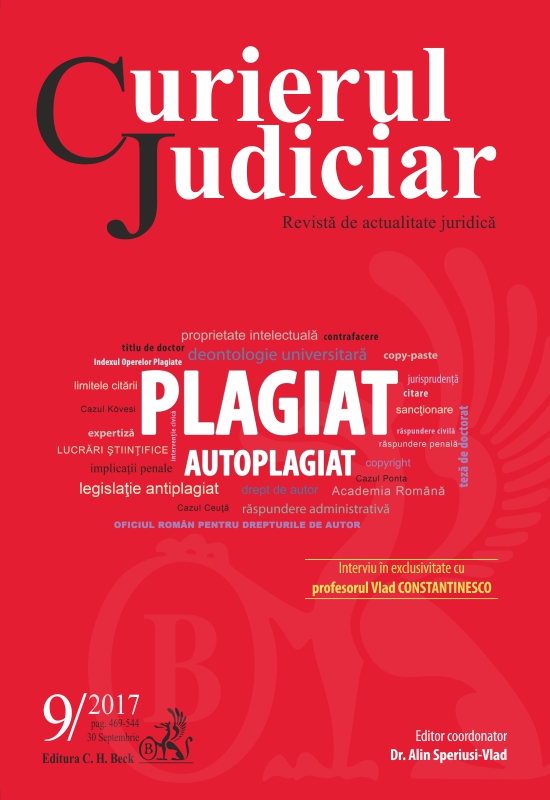Citarea: problemă juridică sau academică?
The Quotation: A Legal or Academic Issue?
Author(s): Vasile DoceaSubject(s): Law, Constitution, Jurisprudence
Published by: C.H. Beck Publishing House - Romania
Keywords: academic community; norms of ethics and scientific research; non-quotation; plagiarism; quotation
Summary/Abstract: The present study starts from the premise that the phenomenon of plagiarism is a specific form of breaking the rules of ethics and scientific research and, as such, it concerns mainly the academic community. In order to verify this hypothesis, I first make the necessary distinction between the academic and the legal environment, seen as autonomous spheres. Then, I investigate the issues related to the systems of quotation, regarded as a set of specific norms, by means of which the academic community regulates its activity with the main goal of increasing knowledge. Both in legal and in academic terms, plagiarism is defined as an author’s appropriation of a text/excerpt of a text/ idea/ intellectual product which is not their own. In terms of procedure, plagiarism happens when an author, appropriating something that is not their own, fails to describe the source of that particular excerpt or idea etc. In other words, plagiarism happens when an author fails to quote. Plagiarism is a non-quotation. Of the two spheres, the academic and the legal, only the former possesses a set of norms which regulates – in detail – the practice of quotation. The legal sphere, based on laws and other legal norms, does not contain regulations about quotation. Under these circumstances, identifying, announcing and punishing plagiarism should happen by means of the mechanisms and instruments – including the institutional ones – of the academic environment.
Journal: Curierul judiciar
- Issue Year: 2017
- Issue No: 09
- Page Range: 522-528
- Page Count: 7
- Language: Romanian
- Content File-PDF

